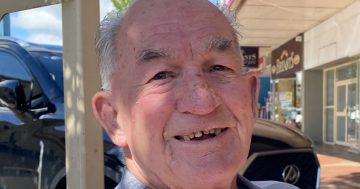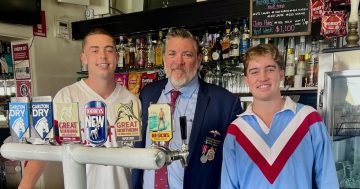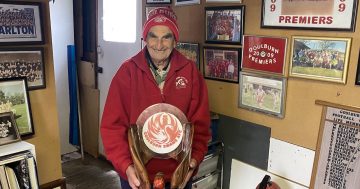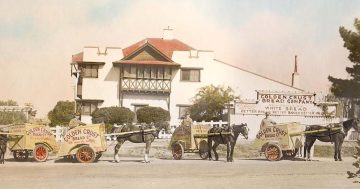
The Bridge Hotel on the corner of Auburn and Goldsmith Streets, Goulburn became the Rural Bank of NSW in 1937. Photo: John Thistleton.
Goulburn’s pubs today have their flashing poker machines and endless televised sport but not the high-profile publicans like the McInnes brothers who ran hotels during the turn of the 19th and 20th century.
Off the land at the Roslyn end of the Middle Arm Road near Goulburn, the six brothers of Scottish heritage became hands-on publicans and threw themselves into gambling and sport as much as being contemporary licensees.
One of the brothers’ descendants, Rod McInnes has recorded much about their lives and times. Born and educated in Goulburn and now living in Sydney, Rod regularly dives into the city’s archives and comes up with nuggets of information. Thousands of history buffs on social media know Rod from his research into buildings and families in Goulburn. Some of his inquiries lead back to his family and their publicans.
Like Angus Augustus McInnes who reopened the Hibernian Hotel in 1880 after it had been unlicensed for 30-odd years. It first opened in 1850. A.A. McInnes ran the hotel successfully for 11 years, during which time he sponsored the Coursing Club (greyhounds) and raced trotters.
A.A. McInnes went through a cycle of bankruptcy during the 1890 Depression, running the Oddfellows Hotel (now Empire) from 1891-1893 and Commercial Hotel from 1895-1906. Bankruptcy may have ruled him out, but he was able to continue, relying on the names of his mother and son to stay in business. But on his son’s bankruptcy in 1906 he left the business.
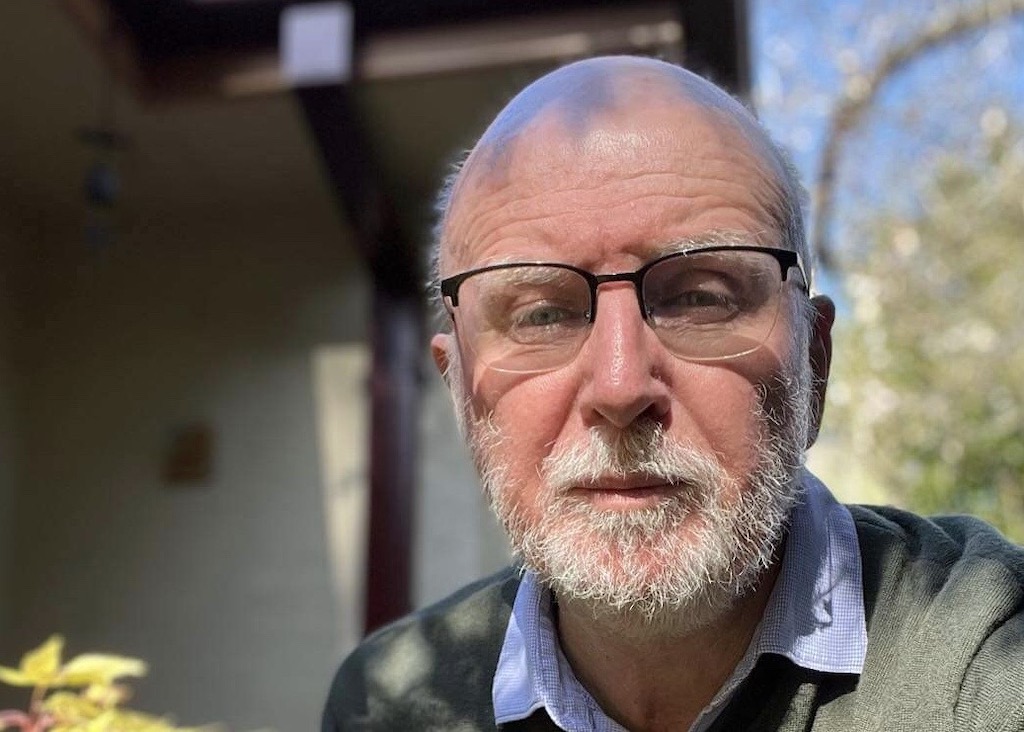
Rod McInnes keeps an enthusiastic eye on Facebook sites focussed on Goulburn’s history and has made numerous contributions from archives including the national Library of Australia’s Trove database. Photo: Supplied.
Another brother, Peter Thomas McInnes became the publican of the Bridge Hotel from 1885 to 1891. The landmark corner building later became the Rural Bank of NSW and now stands vacant. The Bridge Hotel was so named because a bridge crossed over a waterway near the Goldsmith – Auburn Streets intersection. The waterway was later enclosed.
Peter then ran the Cricketer’s Arms in 1891 which turned out to be a tumultuous year. “He took up the license early in the year, changed the hotel name to the Criterion in June and was bankrupt by October,” Rod said.
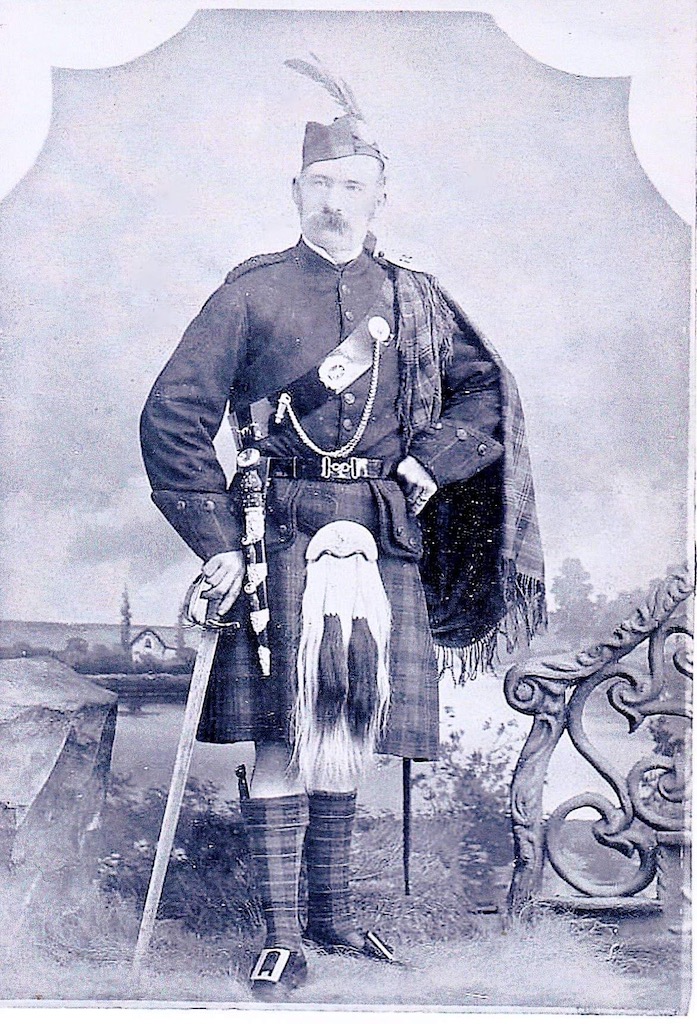
Peter Thomas McInnes, one of the publicans of the Bridge Hotel, Goulburn in full highlands attire. Photo: McInnes family collection.
The Highlands Society in Goulburn became a huge undertaking through the 19th century, probably into the 1920s and ’30s and Peter and Angus were in the thick of the action.
“There was a major highlands sports event, similar to the Brigadoon Festival at Bundanoon, in Goulburn each year,” Rod said. “Peter tossed the caber at the Anniversary Day (Australia Day) Highland Gathering in 1891, the same games at which a future mayor of Goulburn, Tom Manion, won the wrestling on horseback.”
Of Irish background, the Manions also lived at Middle Arm and Tom and Peter became good friends. Despite his background Tom was invited to the highland games and was noted for wrestling on horseback.
“Tom easily won that event,” Rod said. “I’m familiar with highlands games and I don’t think they do wrestling on horseback anymore,” he chuckled.
“The other activity which we would find quite obscene today I think, publicans were often involved in pigeon shooting,” he said. “Goulburn is quite prominent in shotgun shooting, still today. But in those days it was done by capturing live pigeons, releasing and shooting them,” Rod said.
An uncle of the brothers, also named Peter McInnes who also had a property at Middle Arm, was the family’s first pub owner. “He took up the Market House Hotel opposite Belmore Park in 1871. He transferred to the Robert Burns Hotel almost opposite in 1879, but died a year later,” Rod said.

The Hibernian Hotel at top left when it had two tiers of verandahs, photographed in 1913. The photograph is on display at the Paragon Cafe, Goulburn.
Rod’s father Neil, who married Therese Heaton from Garrundah, bought a property in Golspie in 1958. Rod attended St Patrick’s College in high school and his studies led him into the town’s library then located upstairs in the Mechanics Institute. Wondering about the old building’s origins kindled his early interest in history.
His curiosity was helped along by his family’s history. Today the McInnes family maintains a Facebook site and a family tree website which keep members in touch with one another, including those who left Goulburn many years ago.
When questions arise on the various Goulburn history Facebook sites, Rod dives into Trove, the National Library’s free online database. “Inevitably I find something often ends up with a connection to my family because they were so involved in the late 1930s and 20th century,” he said.







